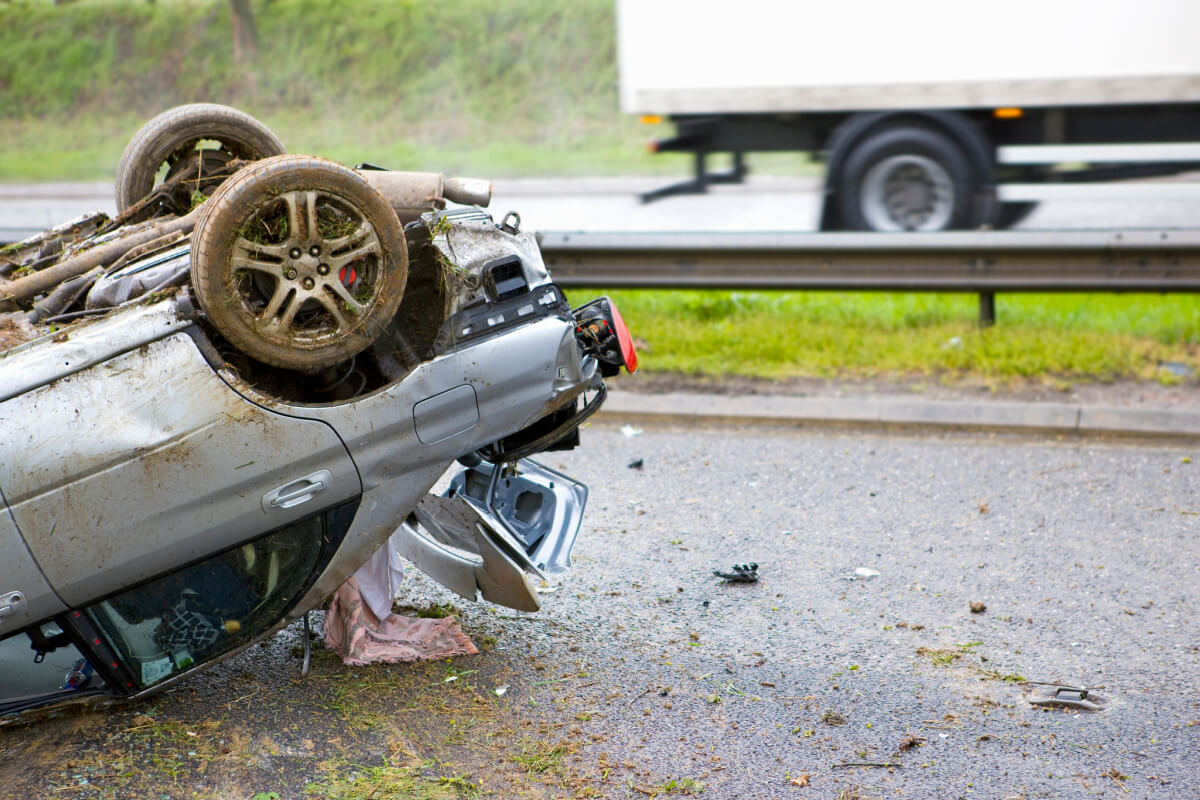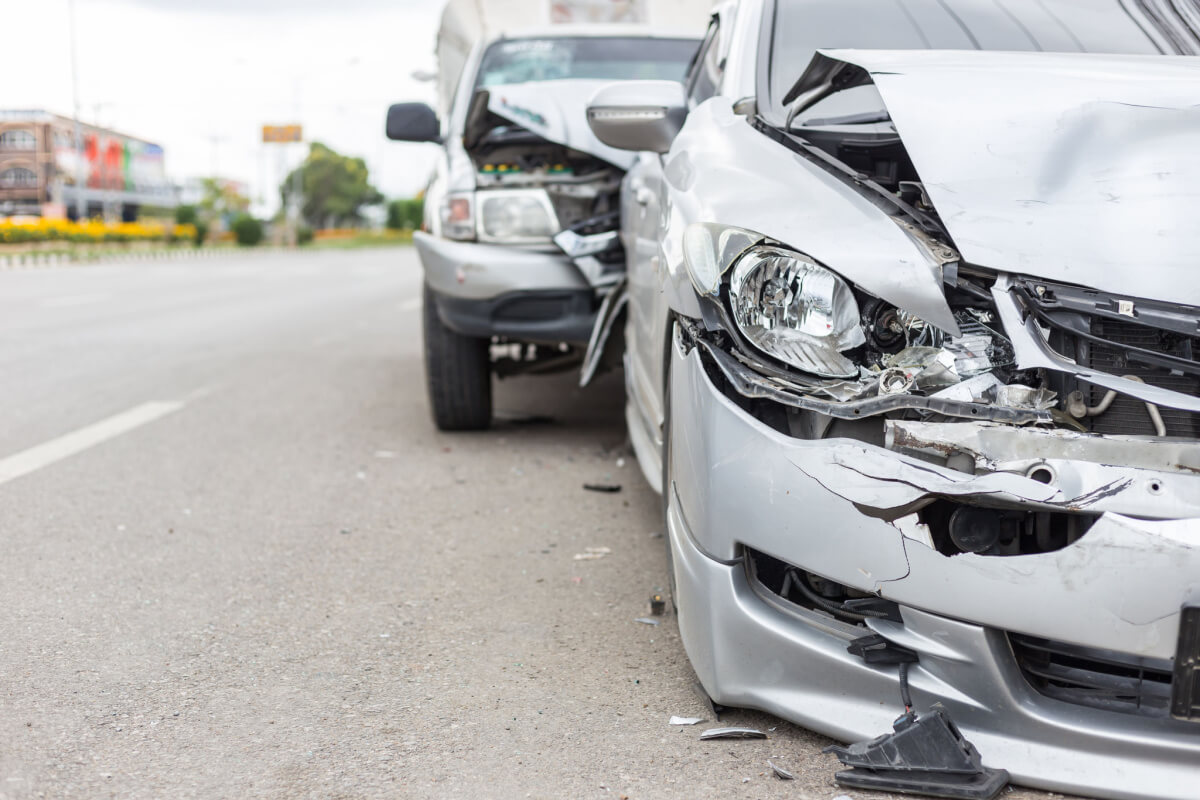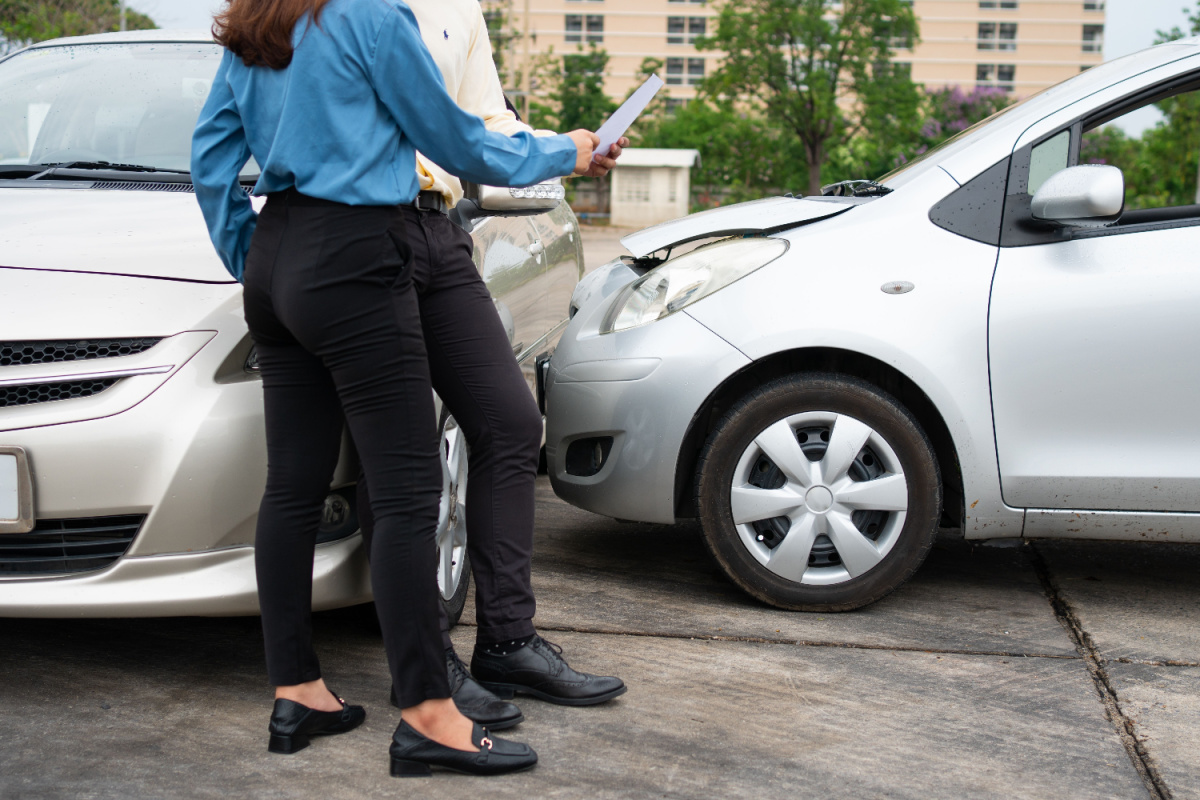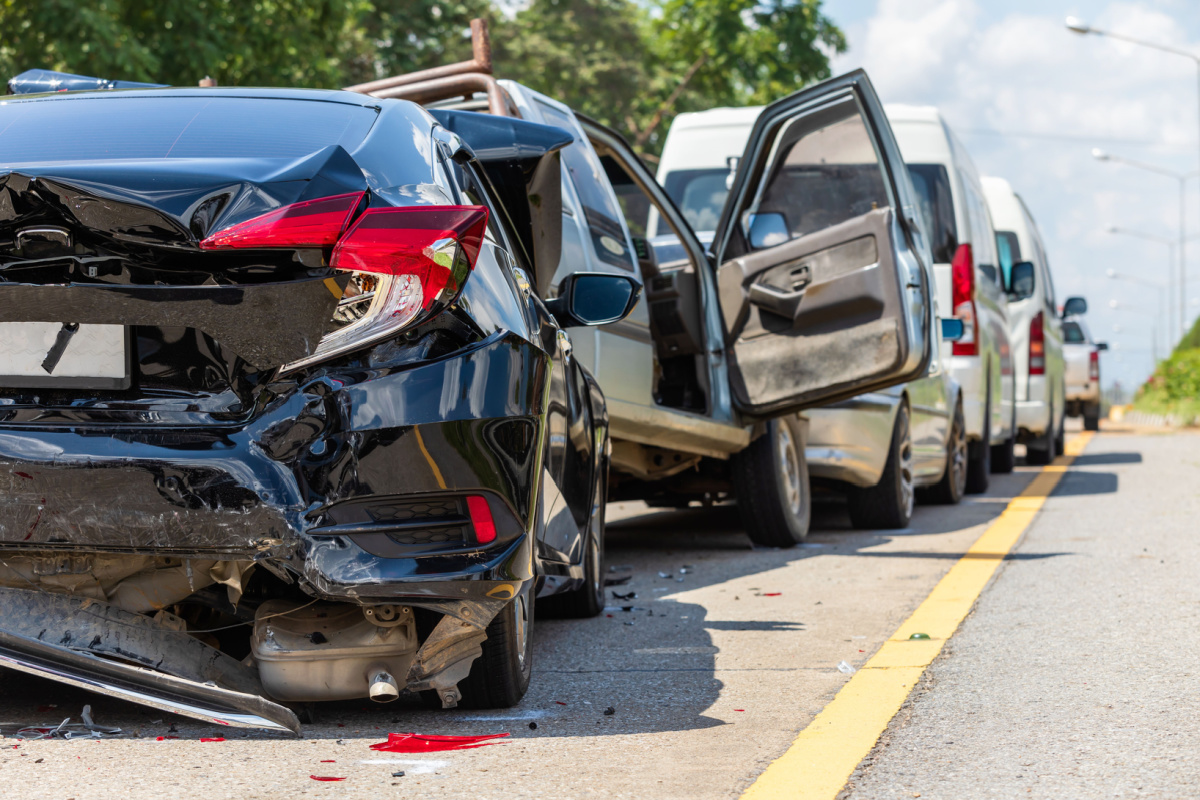
Attorney at Mueller, Schmidt, Mulholland & Cooling
Practice Areas: Motor Vehicle Accidents, Workers Compensation, Property Insurance Claims

Iowa averages over 300 traffic crash fatalities yearly. The top causes are aggressive driving, drunk driving, distractions, drowsiness, and lack of seatbelts, prompting state campaigns to promote road safety awareness and reduce the rising deaths.
Main Causes of Fatal Crashes
| Cause | % of Fatal Crashes | Risks |
| Aggressive Driving | 2/3 | Speeding, road rage |
| Drunk Driving | 30% | Impaired response times |
| Distracted Driving | unknown % (at least 10%) | Taking eyes off-road |
| Drowsy Driving | unknown % | Similar to drunk driving |
What are the top 5 causes identified for vehicle crashes and deaths in Iowa?
The Iowa Department of Transportation has identified aggressive driving, drunk driving, distracted driving, drowsy driving, and driving without a seatbelt as the top 5 causes of vehicle crashes and deaths in the state. Implementing safety campaigns targeting these issues could help lower Iowa’s 300+ annual traffic fatalities.
Traffic fatalities are a persistent issue in the state of Iowa, claiming the lives of drivers, passengers, pedestrians and cyclists. According to the Iowa Department of Public Safety, there have been over 300 traffic fatalities per year in Iowa for almost a century – a trend the state would like to see change for the better.
Vehicle Crash Fatality Statistics in Iowa
- Since 2018, the number of traffic fatalities in Iowa has been trending upward from 319 to 337 in 2019, 343 in 2020, and 356 in 2021. Even though the number has increased over the past four years, it is still lower than the 402 fatalities recorded in 2016.
- More than 3500 people have died in vehicle crashes over the past ten years.
- In 2021, the majority of vehicle crash fatality victims were men, who made up more than 75% of the total lives lost.
- The majority of vehicle crash fatalities since 2017 have occurred in rural areas. However, the number of fatal crashes in urban areas has steadily increased from 73 in 2017 to 113 in 2021.
- At least 10% of victims between 2017 and 2021 were pedestrians.
- Motorcyclists have also proven to be at risk of fatalities in vehicle crashes. Sixty-eight motorcyclists lost their lives in vehicle crashes in 2021, a steady increase since the 48 fatalities recorded in 2017.
- The Iowa Department of Transportation also records vehicle crash fatalities involving bicycles and ATVs. Fortunately, these numbers have remained small, totaling less than 8% of fatalities since 2017.
- The deadliest months for vehicle crash fatalities over the past five years have been September (2017 and 2019), June (2018), August (2020) and May (2021).
- Independence Day and Labor Day were the holiday weekends with the most traffic deaths in 2021, with seven fatalities occurring on each day.
- The majority of vehicle crash fatalities occurred during the day on dry roads.
- It is estimated that the total annual cost of vehicle crash fatalities in Iowa is over $3.5 billion.
The Iowa Department of Transportation has identified five main causes of vehicle crashes in the state, and is making efforts to educate drivers about their risks and legal penalties.

Aggressive Driving
The American Automobile Association defines aggressive driving as purposely driving in a dangerous manner. These actions can be described as aggressive driving:
- Following too closely
- Speeding
- Purposely braking suddenly in front of other drivers
- Moving lanes without using the turn signal
- Not stopping at red lights
- Cutting off
- Not letting drivers in to change lanes or speeding up when they try to pass
Road rage is the commonly used term for extreme aggression when driving.
Road rage is the commonly used term for extreme aggression when driving. Road rage behaviors can be offensive such as using obscene language or gestures, or extremely dangerous including forcing a car off the road, purposely colliding with another car or even discharging firearms.
An AAA survey showed that nationally, aggressive driving is common and millions of drivers admitted to aggressive driving behaviors and road rage in the previous month, including using their horns, running red lights, or passing/merging dangerously.
According to the Iowa Department of Transportation, two-thirds of traffic fatalities involve aggressive driving, which was identified as a cause of 176 vehicle crash fatalities in 2021. Primarily, dangerous speeds have proven to be a major problem on Iowa roads. The number of motorists ticketed for driving more than 25 miles per hour over the speed limit has sharply increased, as well as speeding over 100 miles per hour – in each case, more than a third over the five-year average.
Get your free consultation
Iowa authorities also want the public to know that choosing aggressive driving behaviors can be costly. If caught by police, aggressive driving behavior can also incur an average fine of $195. Speeding fines in Iowa range from $92 to $402.
Driving Under the Influence
Driving under the influence significantly contributes to Iowa traffic deaths.
According to the National Highway Traffic Safety Association, in the United States, one person dies in a drunk-driving accident every 45 minutes. Alcohol impairs a number of bodily systems needed to operate a vehicle safely, such as reaction time, coordination, and critical thinking. A driver does not have to be legally intoxicated to cause an accident. Any amount of alcohol can cause impairment, and in 2021, more than 2,000 people in the United States lost their lives in traffic fatalities when the driver had a blood alcohol level under the legal limit.
In 2021, drunk and drug driving claimed 89 lives in Iowa – more than 30% of that year’s total. Driving under the influence of alcohol or drugs particularly affects young men between the ages of 20 and 24.
Driving under the influence has severe legal and financial penalties.
Driving over the BAC (blood alcohol limit) of .08 is illegal in Iowa, as well as driving under the influence of other controlled substances, including prescription drugs. OWI (Operating While Intoxicated) charges in Iowa can be very costly. The cost of fines, organizing a legal defense, and an increase in insurance rates can add up to $10,000.
Distracted Driving
In the United States, 10% of fatal crashes involve distracted driving. However, in the aftermath of a crash, it can sometimes be difficult to determine if distracted driving was a factor – so it’s likely the number is much higher.
Many common activities behind the wheel qualify as distracted driving.
Anything that takes a driver’s focus off of the road makes them four times as likely to cause an accident serious enough to result in injury. Some common ways drivers become distracted include:
- Handling food or drinks
- Holding a cell phone
- Adjusting a GPS, stereo or other instruments
- Texting
- Helping a passenger or animal in the car
- Reaching for something in the backseat or on the floor
- Attending to personal hygiene or grooming
- “Rubbernecking” or looking at a road accident
- Getting involved in a conversation or argument with passengers
- Daydreaming
- Talking on a hands-free cell phone
Texting while driving is an especially dangerous distraction.
- Texting while driving increases the risk of a crash by 300%
- A driver who is texting or talking on a cell phone can result in a 37% decrease in brain function needed for safe driving.
- Each text a driver sends or receives takes their focus off the road for 4.6 seconds.
Distracted driving is likely to affect young drivers. Evidence shows that 16% of crashes caused by distracted driving involve drivers under the age of 20. Young drivers are easily distracted – the risk of a crash increases by 50% when a young driver has one passenger, then by 200% when there are two passengers, and by 300% when there are three passengers.
In Iowa, driving while texting, fatigued, or otherwise distracted by something that takes focus off the road was implicated in 30 vehicle crash fatalities in 2021.
Drowsy Driving
Driving while fatigued is just as dangerous as driving drunk. In fact, if a driver is awake for 18 consecutive hours, they display similar characteristics to a driver at the legal BAC limit of .08. Drowsy driving reduces concentration and reaction times, and can lead to driver error such as drifting out of lanes, running red lights, or veering off the road.
Driving under the influence significantly contributes to Iowa traffic deaths.
Drowsy driving is a serious issue in the United States. According to the NHTSA, it claims over 1500 deaths per year. More than 40% of drivers admit they have fallen asleep at the wheel.
Certain types of drivers are vulnerable to drowsy driving. These include:
- Heavy truck drivers – 15% of crashes are due to driving drowsy
- People with medical issues that disrupt sleep
- Night shift workers, whose risk of causing an accident is increased by six times
- Drivers under the age of 25, who cause 55% of drowsy driving accidents
The risk of causing an accident when driving drowsy increases significantly the less sleep a driver has had before driving. A driver with 6 hours of sleep is twice as likely to report drowsy driving as a driver with 7 hours of sleep. If a driver only gets 5 hours of sleep, they are four times as likely.
It’s important for individuals involved in such mishaps to seek post-accident medical advice promptly to ensure a proper health recovery. Moreover, understanding your legal options is equally critical, and finding a knowledgeable car accident lawyer can be instrumental in navigating the complexities of car accident claims. Proactively managing these steps can mitigate the impacts of an accident caused by drowsy driving.
Although there is no law specifically against drowsy driving in Iowa, driving while fatigued, and mistakes while drowsy driving can lead to traffic citations and fines.
Driving Without a Seatbelt
In Iowa, ninety-four lives were lost in 2021 by drivers and passengers not wearing seatbelts.
- Driving without a seatbelt is the most effective way to prevent injury and death in a vehicle crash.
- The forces of a crash turn an unrestrained person in a car into a projectile. Passengers without a seatbelt are 40% more likely to injure others within the car.
- Unrestrained drivers or passengers are also 30 times more likely to be ejected from the vehicle in the event of a crash, placing them at major risk of injury and death. In fact, 75% of crash victims ejected from the vehicle die of their injuries.
Driving without a seatbelt in Iowa is against the law and subject to a fine of $127.50.
- Iowa law also requires children under the age of six to ride in a safety seat or booster seat. A child less than a year old and under 20 pounds must ride in a rear-facing car seat. A driver with children in the car that do not meet these requirements are subject to a $195 penalty.
If you were recently involved in a car accident in Des Moines and need legal representation, a Des Moines car accident attorney can help. They have the experience and knowledge to handle your case and fight for your rights.
Categories

Providing Unmatched EXPERIENCE On Your Case When you find yourself in a situation where you’ve been treated unfairly or you’re in the middle of a legal disagreement, it can be difficult to know what your rights are and how to proceed.







